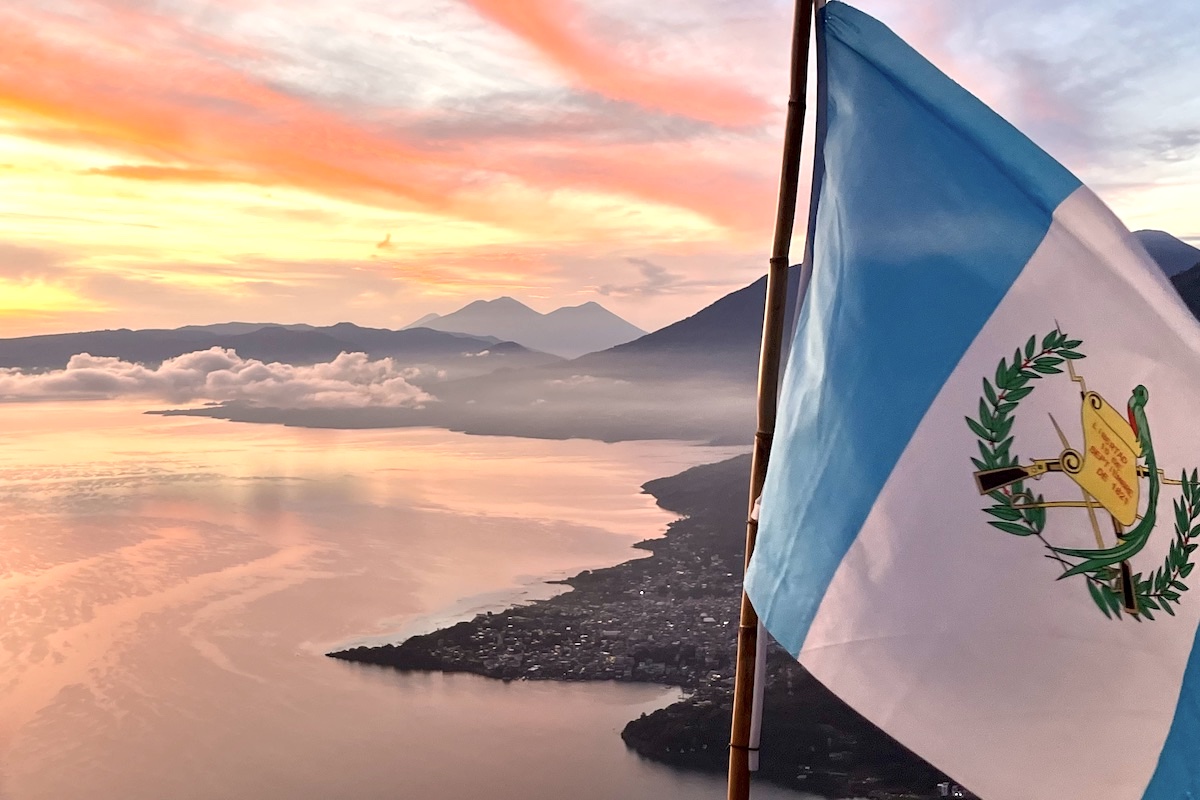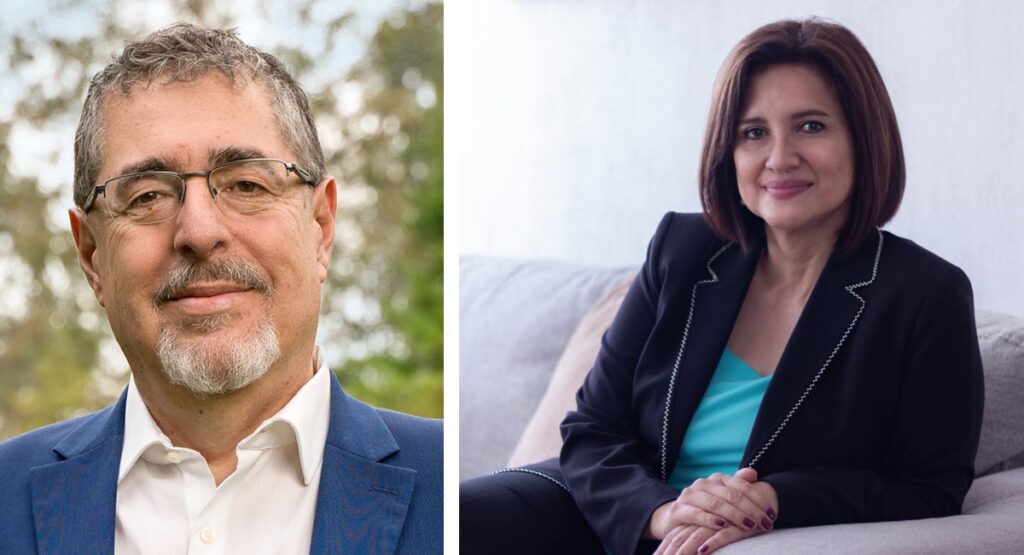You don’t see the army on the streets, and there are no speeches being delivered by a military “junta” on “CNN en español.” How could a coup be happening in Guatemala, if the current president, Alejandro Giammattei, who is at the very end of his term, is not dissolving Congress and, under international pressure, has said that he will “carry out a peaceful transfer of power” to the newly-elected president?
And why would Giammattei, a sitting president of the largest country in Central America with only three months remaining in his term, bother to orchestrate a coup?
Very simple: As an act of self-preservation.
After almost four years in office, accusations and cases alleging corruption against Giammattei and his allies are mounting, but the cases are not moving through the courts. No wonder. Giammattei exerts total control over the prosecutor’s office. Only legal cases against his detractors have gained any traction, and only his opponents have been jailed. Guatemala’s winning presidential candidate, Bernardo Arévalo, who recently won a landslide victory with a campaign against corruption, is bad news if your administration is utterly compromised.
In a monumental miscalculation on the part of Giammattei and his co-conspirators, a hand-picked successor, Victor Valenzuela, failed to make the cut in the first round of elections in June. Valenzuela was supposed to go into a second election round against a supposedly unpopular opponent for an easy win. Instead, Arévalo, head of the newly formed Semilla Party, took the country by surprise, pulling ahead and winning second place.
Then Arévalo, a social democrat, won the final election round in August and was declared president-elect by the Supreme Electoral Tribunal, who judged the voting free and fair. His win triggered alarms up and down the corrupt state apparatus, sending powerful politicians and their operatives into panic mode.
According to the Oxford dictionary a “coup” is “a sudden, violent, and unlawful seizure of power from a government.” The most notorious are those where the military overthrows a government to install a military leader or “junta” by force and violence, as happened recently in African countries such as Gabon and Niger.
What we face now in Guatemala is another kind of coup d’état, a “soft coup” where a sitting leader conspires behind the scenes, with the final objective of not ceding power to the rightful winner of an election, instead passing the office illegally to another person or entity, thus breaking the constitutional order and reversing the will of the people. The conspirator weaponizes prosecutors and judges to violate electoral constitutional law and retroactively derail an election.
Instead of using blunt force or violence, a “soft coup” is carried out under the veil of legality, manipulating the levers of jurisprudence, or overstepping them entirely to entrap the democratic process. To discredit or call into question an election that has already been certified and declared clean by an electoral authority and international official observers, is part of a soft coup.

Guatemalans are no strangers to coup d’états of the traditional kind, having had several in our recent history, notably when the CIA helped to overthrow a democratically elected government in 1954. That coup led to decades of military rule and was followed by U.S.-backed coups in the Dominican Republic in 1963, Chile in 1973, and Argentina in 1976. In 2009, Obama’s Secretary of State Hillary Clinton stage-managed a coup in Honduras.
Nor are we unfamiliar with “self-coups.” In 1993, President Jorge Serrano Elias, following the example of Peruvian President Alberto Fujimori, dissolved Congress to stay in power that year.
Today Guatemala is once again in the middle of a constitutional crisis, one President-elect Arévalo himself described as a coup d’état in a recent interview with the PBS Newshour.
In “slow motion,” outgoing president Alejandro Giammattei is not dissolving Congress or ousting judges or magistrates. He planned the scenario ahead of time. He prepared for this.
During his first three years in office, he managed to stack the Supreme Court, the Constitutional Court, lower and appeals courts, and the Office of the Attorney General with unscrupulous and obedient legal operatives that have weaponized their institutions and resources to go after journalists, human rights defenders, or protectors of the land. Dozens have gone into exile, mostly in the United States, including prosecutors and judges who wouldn’t give in to the pressure.
Little by little the current coup is moving forward, despite mounting international pressure and condemnation by the Organization of American States, the UN, the U.S. State Department, the European Union and leaders around the world. If Alejandro Giammattei and his handlers are successful, the presidency will not be transferred to the rightful winners of the elections in January. Instead, it will go to an interim government which will be selected by a sitting Congress with a political majority belonging to the ruling Vamos party.
The “pact of the corrupt” – how many Guatemalans refer to Giammattei’s circle of acolytes – is terrified of a champion who would charge them with legal liabilities for recent acts. An interim government would provide Giammattei and others with cover to continue to profit by stealing from the country’s treasury or maintaining their government-inflated contracts with bribes from the business sector.
The Guatemalan people have spoken loud and clear against corruption with their vote for Arevalo. Others will vote with their feet, as tens of thousands have done before, sick and tired of a country that denies its people opportunities to meet their basic needs. If the soft coup takes hold, the northbound migrant exodus will only worsen.
So how to help stop it?
You can write to your Congressional representative and ask for support to advance a resolution condemning the soft coup in Guatemala. Demand concrete sanctions, not just symbolic travel bans against individuals who want to go to Disney World. Demand bold actions such as placing Guatemala’s sugar import quota on hold until President-elect Arévalo is inaugurated on January 14. These actions would go a long way.
You can call or write to President Biden and Vice President Harris, asking them to use their leadership to invoke the Interamerican Democratic Letter of the Organization of American States, which was designed to initiate collective actions from OAS members when the constitutional order has been breached in a member country. Or start a petition online or answer the calls of U.S.-based activists struggling to preserve and promote democracy in Guatemala. Time is short and the stakes are high.
Edgar Ayala is a Guatemala-born graphic designer, interpreter and community activist. He has been involved in social justice causes in the San Francisco Bay Area for over three decades.





